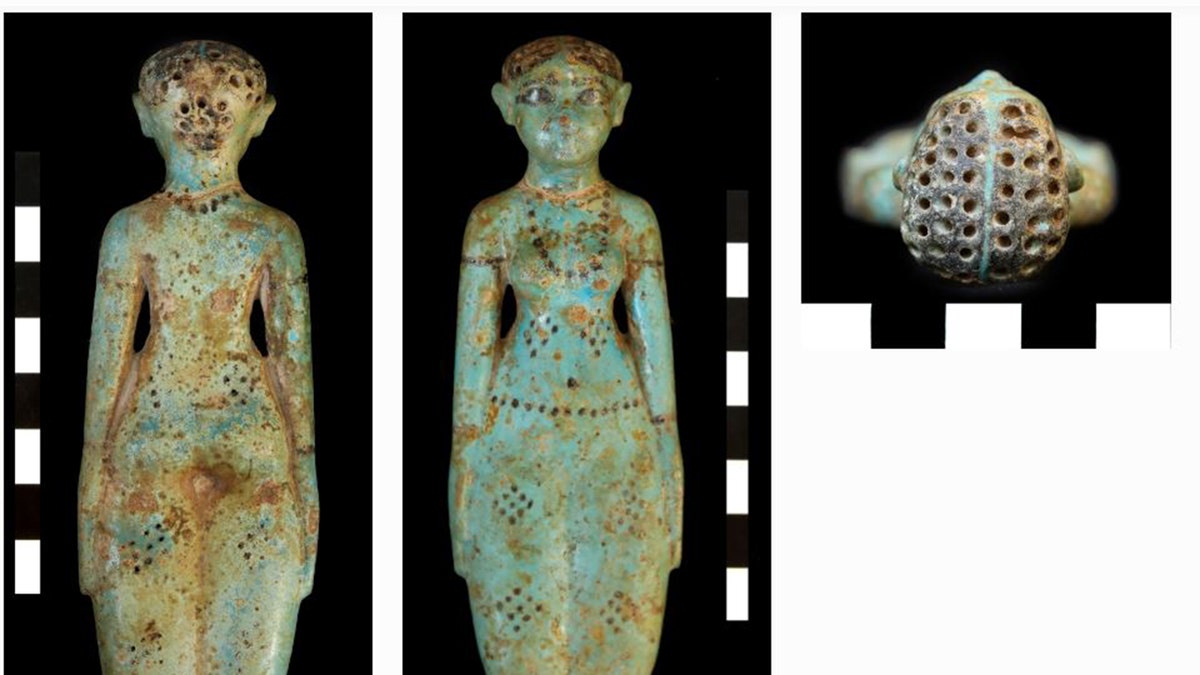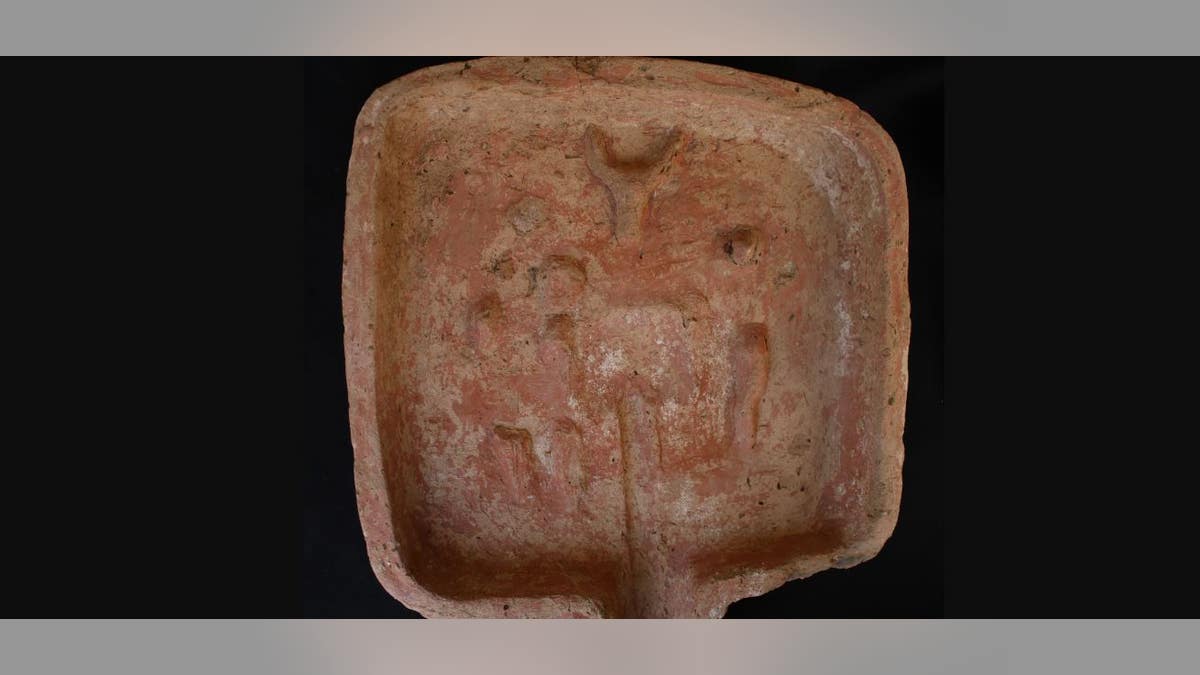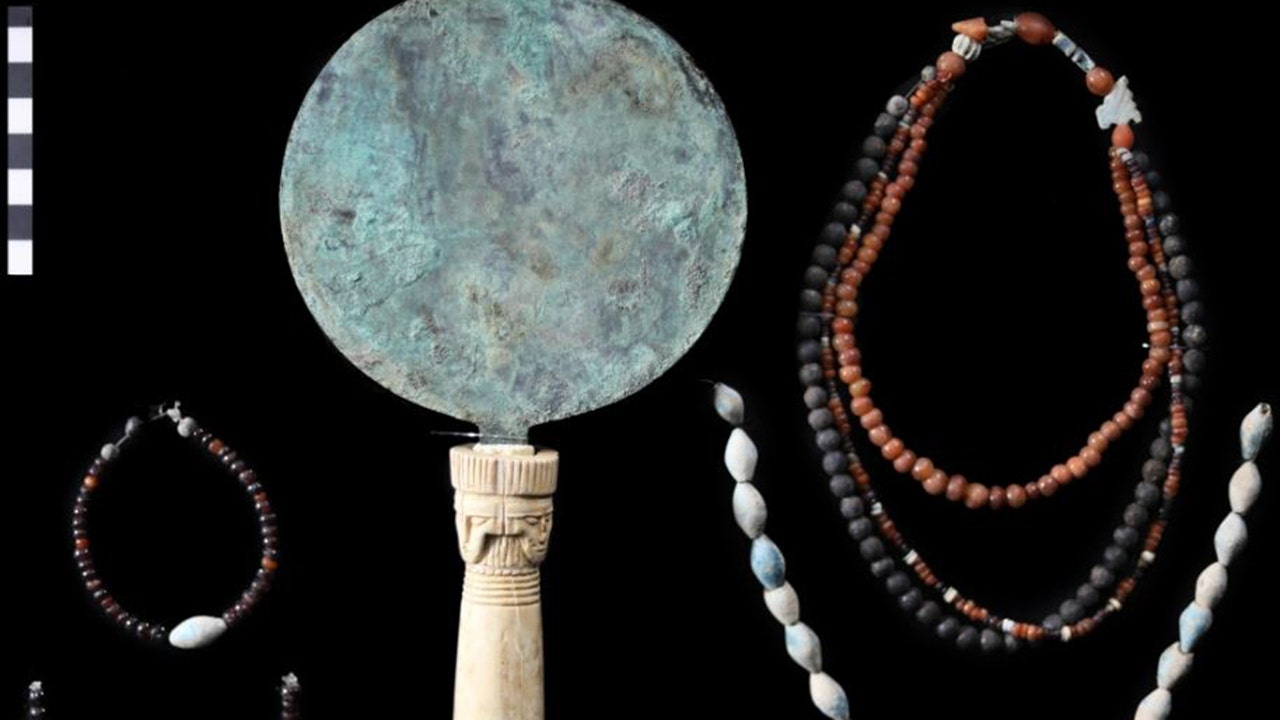Archaeologists with a joint American and Egyptian expedition near Luxor have uncovered a 4,000-year-old Middle Kingdom (1938 B.C.-1630 B.C.) tomb with several intact burials, Egyptian authorities announced on Friday.
Along with the 11 sealed burials, the archaeologists also found jewelry, necklaces, bracelets, armlets, two copper mirrors with ivory handles, and scarab rings and girdles made of carnelian, garnet, faience and feldspar.
“One of the mirrors was found with a lotiform handle, while the second displays the rather rare design of a four-faced Hathor presenting her as a woman with austere features,” Dr. Elena Pischikova, director of the South Asasif Conservation Project, which led the dig, said in a release.
One of the necklaces found inside a man’s tomb is made of amethyst and agate beads surrounding a hippo head amulet.
RESEARCHERS UNCOVER ANCIENT TINY HOUSE AMID CITY EXCAVATION PROJECT
The group also called a green-blue glazed faience fertility figurine an “important find.”
“It is well-modeled and decorated with a variety of jewelry and lozenge markings on the legs and torso,” Pischikova said. “Her cropped hair is painted black. The head is pierced with holes arranged in three sections. The holes were intended for the attachment of ‘hair.’ Almost 4,000 mud beads found next to the figurine constituted her original hair.”
The tomb’s wooden coffins and fine linens found inside were mostly destroyed by what researchers believe were ancient floods.
The coffins contained the skeletons of five women, two men and three children.
The tomb, found in the South Asasif necropolis, next to the Temple of Hatshepsut on the Nile’s West Bank in Luxor, likely belonged to a family, researchers said.
RARE TOOL DATING BACK 3,500 YEARS FOUND IN THE UK

The tomb is the first from the Middle Kingdom discovered in the area, according to the South Asasif Conservation Project.
“The unearthing of the first Middle Kingdom tomb in the South Asasif necropolis alters its history, placing South Asasif within the sprawling Theban Middle Kingdom necropolis,”Pischikova said.
She added, “This significant discovery contributes to our understanding of the burial practices and rituals of the Theban necropolis in the Middle Kingdom as well as presenting a beautiful collection of exquisitely crafted jewelry well-preserved” at the site.

Hundreds of tombs have been uncovered in Luxor in southern Egypt over the years, including its most famous resident: Tutankhamen, an Egyptian pharaoh who ruled from circa 1332–1323 B.C.
His tomb was discovered in 1922.
The Associated Press contributed to this report.
Read the full article here
















